Energy
European Outage Shows Weakness Of ‘Renewable’ Energy
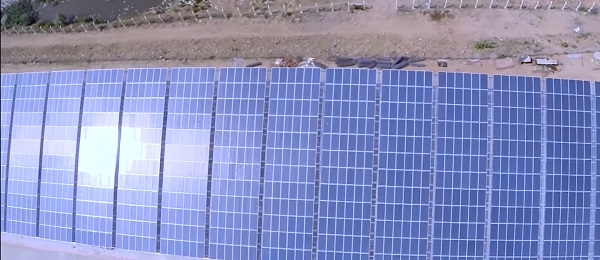

From the Daily Caller News Foundation
By Chris Talgo
Like most of Western Europe, Spain and Portugal have been at the forefront of the green movement in recent decades. Both nations have embraced renewable energy sources, especially wind and solar, as they have transformed their energy grid infrastructure to rely heavily upon these sources.
With that being said, it should come as no surprise that the extensive power outage that crippled these countries and parts of others earlier this week was primarily caused by a huge drop in solar power output in a short period of time.
To be exact, as the Associated Press reports, “In a span of just five minutes, between 12:30 and 12:35 p.m. local time (1030-1035 GMT) on Monday, solar PV generation plunged by more than 50% to 8 gigawatts (GW) from more than 18 GW.”
Based on an early report, the sudden drop in solar power occurred at two solar facilities in southwest Spain, which triggered a “complete collapse of the system,” according to Spanish Prime Minister Pedro Sánchez.
Because power grids are complex structures that are often intertwined among nations, when one country experiences a major outage, it typically spreads to its neighbors as well. Such is why areas in Portugal, France, and Belgium experienced large power outages after the Spanish grid collapsed.
Predictably, the mainstream media are totally ignoring the cause of this manmade disaster.
For now, the official narrative is that the abrupt power outage was due to a “rare atmospheric phenomenon.”
The truth is that Spain, which generated 56 percent of its electricity mix in 2024 from renewables, has become a canary in the coal mine for other nations that are considering going all-in on renewable energy.
Red Electrica, a fitting name for Spain’s monopolistic utility power provider, blamed the power failure on “severe oscillations in high-voltage lines in southern France or inland Spain.” The company said the possible causes “include a physical fault (line disconnection), a sudden loss of generation within Spain or an atmospheric phenomenon.”
What recently occurred in Spain, Portugal, France, and Belgium is not an isolated incident; it is only the latest instance of an electric grid being unable to deliver on-demand power due to an overreliance on renewable energy.
The same thing’s been occurring more and more in the United States in recent years, especially after President Biden’s four-year war on natural gas and coal, which can provide abundant, affordable, and reliable energy 24 hours per days, seven days per week.
As the federal government, in cahoots with state and local governments, has pushed electricity grid operators to build more solar and wind power facilities instead of dependable natural gas plants while prematurely shuttering perfectly operable coal power plants, the U.S. grid has suffered.
As the American Energy Alliance notes, “ power outages have increased by 93 percent across the United States over the last 5 years—a time when solar and wind power have increased by 60 percent. Texas, who leads the nation in wind generation, and California, who leads the nation in solar generation, have had the largest number of power outages in the nation over those 5 years.”
It also must be emphasized that wind and solar are not environmentally friendly.
While it is true that solar panels and wind turbines produce little to no direct carbon monoxide emissions; it is also true that the manufacturing process requires vast amounts of rare earth elements.
It is also the case, as even the Los Angeles Times acknowledged in 2022, that enormous solar fields and gigantic wind turbines destroy pristine lands, disrupt habitats, are nearly impossible to recycle, and result in the mass killing of birds, whales, and other animals.
Finally, it is essential to reinforce the fact that not only are wind and solar unreliable and bad for the environment, but they also cost more, not less, than natural gas and coal.
As James Taylor, President of The Heartland Institute, notes in a new Policy Study, “a peer-reviewed analysis of full-system levelized costs of competing power sources shows wind power is seven times more expensive than natural gas power and solar power is 10 times more expensive.”
The good news for Americans is that President Trump understands the fundamental folly of the so-called green movement. Unlike his predecessor, Trump is not interested in pushing what he calls the “green new scam.”
Over his first 100 days, Trump has taken a vast array of actions to roll back Biden-era regulations that stifled domestic energy production. Moreover, Trump wants to export natural gas to Western Europe, which would weaken Russia’s war machine while bringing our traditional European allies back in the fold.
Hopefully, this dark episode will help other European nations, Germany in particular, recognize that you simply cannot run a modern nation primarily on wind and solar power.
Chris Talgo is editorial director at The Heartland Institute.
Business
Department of Energy returning $13B climate agenda funding to taxpayers
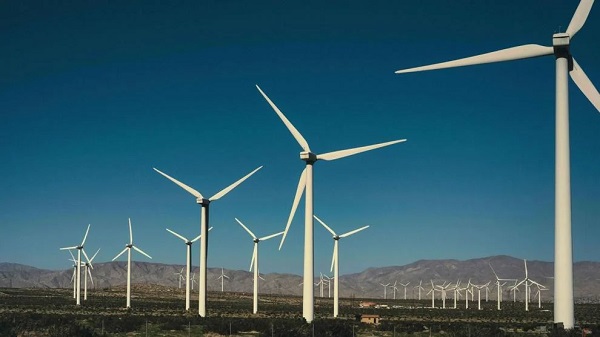
From The Center Square
By
The U.S. Department of Energy will be returning to American taxpayers $13 billion in “unobligated wasteful spending” that was originally intended for former President Joe Biden’s climate agenda.
In response, Larry Behrens from Power the Future told The Center Square that “by returning $13 billion, the Department of Energy under President Trump is showing respect for taxpayers and a willingness to end funding for programs that don’t work.”
Power the Future is a nonprofit dedicated to Americans who work in reliable energy sources.
Behrens told The Center Square that the Department of Energy’s action “is a welcome step toward restoring accountability and letting free markets – not bureaucrats – determine our energy future.”
“The American people made it crystal clear at the ballot box that they don’t want another taxpayer dollar wastefully spent on green scam pet projects,” Behrens said.
Diana Furchtgott-Roth of the Heritage Foundation told The Center Square that with the return of $13 billion, “the deficit will be lower than otherwise.”
When asked what other actions the Department of Energy should take to end wasteful spending, Furchtgott-Roth said that “the Department should comb through its budget and see what projects can be accomplished by the private sector, then end those projects.”
“The Department should also look through its regulations and see which ones impose costs on businesses and families,” Furchtgott-Roth said.
“For instance, the Department should eliminate appliance regulations that prevent companies from producing the gas stoves, boilers, or water heaters that people want to buy,” Furchtgott Roth said.
The Department of Energy announced Wednesday its “intention to return more than $13 billion in unobligated funds initially appropriated to advance the previous Administration’s wasteful Green New Scam agenda.”
The department said its announcement reflects “the [Trump] Administration’s commitment to halt wasteful spending and refocus the department to its core mission.”
For instance, Trump signed the Working Families Tax Cut into law earlier this year, the release said, which “directed the Energy Department to rein in bloated federal spending and expedite the return of unobligated funds to the U.S. Treasury to support hardworking Americans.
“The Department of Energy is working to advance its critical mission of unleashing affordable, reliable and secure energy for all Americans while increasing efficiency and promoting better stewardship of taxpayer dollars,” the release said.
The Department of Energy has not yet responded to The Center Square’s request for comment.
U.S. Secretary of Energy Chris Wright said in the news release: “The American people elected President Trump largely because of the last administration’s reckless spending on climate policies that fed inflation and failed to provide any real benefit to the American people.”
“Thanks to President Trump and Congress, those days are over,” Wright said.
Renewable energy group American Council on Renewable Energy has not yet responded to The Center Square’s two requests for comment.
Behrens told The Center Square, “keep in mind it was Biden’s DOE that funneled billions to an electric vehicle charging program that failed to deliver results.”
“Over $6 billion in EV charging funding has now been flagged as wasteful,” Behrens said.
Behrens also referred The Center Square to a White House document entitled “Ending the Green New Scam.”
Furchtgott-Roth informed The Center Square that “in general, states with the most expensive electricity require renewables (with the exception of Alaska), and states with the least expensive electricity do not require renewables.”
“States should prioritize affordable, resilient, reliable energy,” Furchtgott-Roth said.
“This means getting rid of requirements that a share of electricity be produced with renewables,” Furchtgott-Rott said.
Alberta
Federal policies continue to block oil pipelines
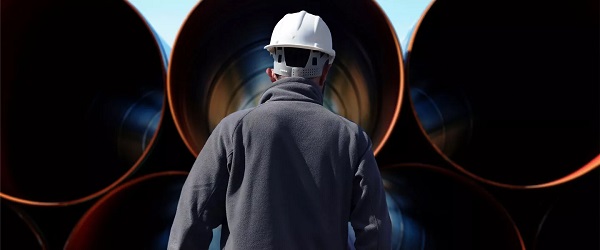
From the Fraser Institute
By Tegan Hill and Elmira Aliakbari
Prime Minister Carney’s recently released list of five projects—which the government deems to be in the national interest and will expedite—doesn’t include a new oil pipeline for western Canada in general or Alberta in particular. The reason given was that no private developer stepped forward to finance or build one. But the reason for that is not a mystery: Justin Trudeau’s damaging energy policies continue to drive away oil and gas investment even though his successor campaigned on a different, more pragmatic approach. It’s no wonder Albertans are frustrated.
Promising to make Canada the world’s leading “energy superpower,” the Carney government in the spring introduced Bill C-5, the “Building Canada Act,” to give the federal cabinet sweeping powers to circumvent existing laws and regulations for projects deemed to be in the “national interest.” In effect, cabinet and the prime minister are empowered to pick winners and losers based on vague criteria and priorities. But while specific projects will be expedited, so far nothing has been done to undo the damaging federal policies that have hamstrung Canada’s energy sector over the last decade.
Trudeau-era changes to the regulatory system for large infrastructure projects included: Bill C-69 (the federal “Impact Assessment Act”); the West Coast tanker ban (as spelled out in federal Bill C-48); and the federal cap imposed exclusively on oil and gas emissions. These have hindered energy investment and development and impeded prosperity, not only in energy-producing provinces, but across the country.
The Energy East and Eastern Mainline pipelines from Alberta and Saskatchewan to the east coast would have expanded Canada’s access to European markets. But the Trudeau government rendered the projects (Energy East and the Eastern Mainline) economically unprofitable by introducing new regulatory hurdles that ultimately forced TransCanada to withdraw from the project.
A year after taking office, the Trudeau government simply cancelled the Northern Gateway pipeline, an already approved $7.9 billion project that would have transported crude oil from Alberta to the B.C. coast, thus expanding Canada’s access to Asian markets. As for Trans Mountain, the one pipeline project that did survive the Trudeau years, after the private investor was frightened off by regulatory hurdles and delays and the federal government took over, costs sky-rocketed to $34 billion—more than six times the original estimate.
With policies like these still in place, it’s no wonder investors aren’t lining up to put big money into Canadian oil and gas. Just how great the discouragement has been is indicated by the 56 per cent inflation-adjusted decline in overall investment in the oil and gas sector between 2014 and 2023 (from $84.0 billion to $37.2 billion).
That decline in investment has had and will continue to have big consequences for the western provinces, particularly Alberta, where energy is a key part of the economy. But it would be a mistake to think the costs are limited to Alberta. From 2007 to 2022, Albertans’ net contribution to federal finances (total federal taxes they paid minus federal money spent on or transferred to them) was $244.6 billion. A strong Alberta helps keep taxes lower and fund public services across Canada.
Canada urgently needs new oil pipelines to tidewater. The U.S. is currently the destination for 97 per cent of our oil exports. This heavy reliance on a single customer leaves us exposed to policy shifts in Washington, such as the recent threat of tariffs on Canadian energy. Expanding pipeline infrastructure both westward and eastward would help diversify our export market into Asia and Europe, as well as strengthen our energy security.
Prime Minister Carney’s short list of projects is another blow to western Canada, and especially Alberta. There’s an obvious reason no private developer has stepped forward to finance or build a new oil pipeline: the Trudeau government’s damaging energy policies. The federal government needs to undo these policies and allow the private sector to make Canada an energy superpower.
-

 Alberta4 hours ago
Alberta4 hours agoFederal policies continue to block oil pipelines
-

 Autism5 hours ago
Autism5 hours agoAutism – what we know
-

 Business2 days ago
Business2 days agoGun Buyback Program creating criminals out of law abiding citizens and directing police away from actual crime
-

 Opinion1 day ago
Opinion1 day agoThe City of Red Deer’s financial mess – KPMG report outlines failure of council to control spending
-
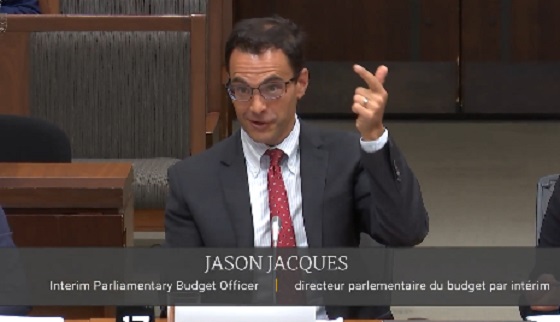
 Business1 day ago
Business1 day ago“If you don’t change, this is dying.” PBO warns Carney’s massive deficits are an extinction level threat
-

 COVID-1911 hours ago
COVID-1911 hours agoSecond Massive Population Study Finds COVID-19 “Vaccines” Increase Risk of 6 Major Cancers
-
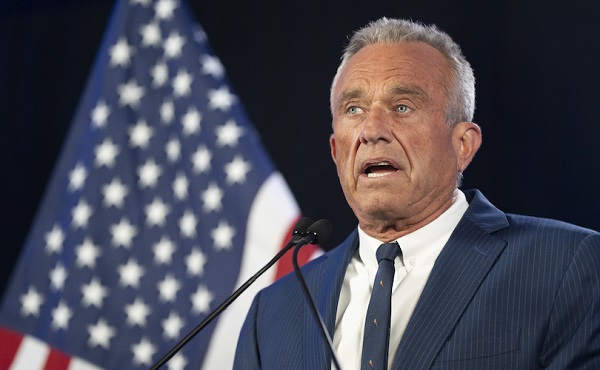
 Health15 hours ago
Health15 hours agoRFK Jr. says US rejects WHO with powerful message about sovereignty and the chronic disease crisis
-

 Energy2 days ago
Energy2 days agoHere’s a list of ways the Carney government can unshackle Canada’s energy sector





